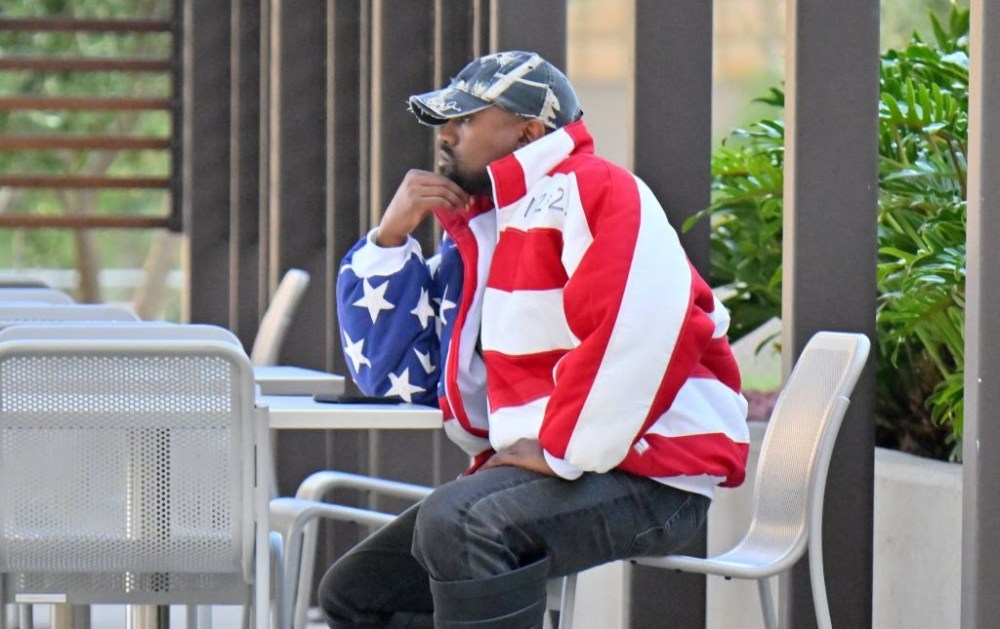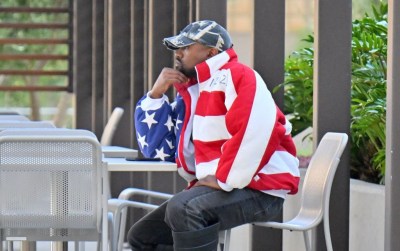If you had $1 billion, what would you do with your life?
How about $190 billion?
The difference between those two seems academic to a middle-class schlub like me, as there’s not a lot one can do with $190 billion that one can’t do with $1 billion. Although if one of your highest ambitions is to make social media safe again for chuds with Pepe avatars, I suppose the distinction is meaningful.
I can tell you what I wouldn’t be doing if my net worth surged to 10 figures. I wouldn’t be spending much time online.
And to the extent that I did, I wouldn’t be using it to sh-tpost.
One might think the most successful people in the United States would agree. If you’re a political leader, a captain of industry, or a musical phenomenon, the world is your oyster. You have the means to chase any dream you want, meet anyone you want, and enrich Western civilization in ways unavailable to us, the talentless schlubs.
Imagine having that opportunity and deciding what you want to do with your great good fortune is Jew-bait, float conspiracy theories, and meme about the “woke mind virus.”
Which brings us to this already legendary tweet from October by the MAGA-led Republican wing of the House Judiciary Committee.
That was posted shortly before Kanye West went “death con 3 on JEWISH PEOPLE,” before Trump washed out in the midterms and dined with Nick Fuentes, and before Elon Musk wrecked Twitter’s verification process and chased off many of the platform’s advertisers by reinstating a motley crew of banned cranks. Given how miserably each man has performed since the tweet went up, it reads less like an endorsement than a witch’s curse.
But it was an endorsement. Trump earned it by being, well, Trump. Musk earned it by posturing as an avenging angel of unfairly suspended conservative Twitter users. And West earned it by wearing a “White Lives Matter” T-shirt to a fashion show, a trollish provocation that was evidently important enough to Jim Jordan and the Jordanaires on the committee to warrant celebrating him alongside a former Republican president.
Nearly two months later, despite the drumbeat of embarrassment each man has suffered since, that October 6 tweet remained live—until this afternoon, when it was dredged up again and recirculated following a West interview with Alex Jones that produced soundbites like, uh, this.
The humiliation of Kanye taking a “First they came for the Nazis and I said nothing” line with Jones finally convinced the committee’s account to delete the tweet. But it’ll remain a fascinating time capsule from the fall of 2022 about how three very different folk heroes to populist conservatives repeatedly stepped on their own schlongs professionally.
“Kanye. Elon. Trump.” Why? How?
The right-wing interest in West and Musk is easy to explain, and already has been explained. For all of their animosity toward “the elites,” populists go moon-eyed when a celebrity pats their heads and takes sides with them against the left. It leads them to believe their politics is making inroads with the influencer class and therefore might soon sweep to popularity across America. More importantly, it makes them feel elite by association.
Whatever Nick Fuentes might say publicly about the untermenschen, you and I know that he relishes the vicarious celebrity status he’s achieved as a sidekick to a very famous, very rich black musician.
Why righties have taken to Kanye, Elon, and Trump is uninteresting and straightforward. Each has aligned himself with the right to various extents (the very, very, very far right in West’s case). QED. More interesting is why Kanye, Elon, and Trump have taken to them, engaging in daily lib-owning at an almost manic clip. Musk runs two well-regarded businesses besides Twitter; Trump leads a political party and a just-announced presidential campaign; West has (or had?) numerous fashion ventures to oversee when he isn’t busy making albums that are treated as capital-E Cultural Events upon release.
To say that each man has better things to do with his time than edgelord his way across various media is an understatement.
It’s not that they have nothing better to do. They just … want to spend their time edgelording, it seems. Even if, to different degrees, they’re plainly destroying their careers by doing so.
The three are not the same to my eye. West is disturbed; Trump is a demagogue; Musk is a social media addict. But they do have things in common, and I don’t mean wealth.
Each has a strong need for attention. Strong. Weird-even-for-a-celebrity, possibly diagnosable levels of strong. Trump and West have been entertainers for years so their need to play to a crowd can’t be blamed wholly on Twitter. Musk, however, has the vibe of a junkie whose habit is so out of control that he bought the entire cartel in order to get the ultimate fix. He wanted to become the world’s most powerful troll, Twitter’s so-called “main character” in perpetuity, and now he has. $44 billion is a lot of money to pay for attention.
Each is prone to conspiracy theories. Trump and West are more than prone, with the former forever screeching about “rigged elections” and the latter lately muttering about the Jews who rule the world. Musk isn’t as soft-headed, but it’s notable that one of the most damaging episodes for Twitter since he took over came when he tweeted a conspiracy theory suggesting that the attack on Nancy Pelosi’s husband was part of a gay tryst gone wrong.
He later deleted the tweet, something Trump and West wouldn’t have done. Whether he did so because he thought better of his theory or because the tweet spooked advertisers and was hurting his bottom line is known only to him. But we shouldn’t give too much benefit of the doubt about good judgment to a guy taking his administrative cues from someone named “Catturd.”
Each is insanely messianic. How insanely? Put it this way: Time’s reigning “Person Of The Year,” who aims to put a man on Mars and to save Western democracy by saving free speech, is probably the least messianic of the three.
Only a fool would try to make sense of Kanye West’s mind but a man who called himself “Yeezus,” has cut tracks like “I Am a God,” and is plainly unwell even in his best moments may perhaps have trouble discerning the line between his own person and divinity. In the past he’s called himself “unquestionably, undoubtedly the greatest human artist of all time” and “the greatest artist that God has ever created” and in one song said of Jesus, “I know he’s the most high, but I am a close high.”
He might not be the God, but a god….
As for Trump, you know all about him. “I alone can fix it,” he famously once said of America’s problems, whereupon he set about turning the Republican Party into a personality cult with himself at the center. His national-savior persona proved so compelling to some conservatives that “Patriot Churches” sprang up to praise His name. Lately members of the Trump family have appeared as special guests at Christian nationalist revivalist events where attendees insist that Trump was chosen by God to save America.
We’ve had a lot of egomaniacs as president. But only one has been so messianic that he dared attempt a coup to keep himself in power.
Kanye. Elon. Trump. Three fabulously successful men, three gurus of a sort, each driven by narcissistic tendencies to sh-tpost away many of his productive hours. As a result, West has scared off numerous business partners by ranting about Jews. Trump has weakened his hold on the GOP by obsessing endlessly about stolen elections. Musk has alarmed advertisers with his erratic, seemingly arbitrary moves on Twitter moderation.
They have the world at their feet and seemingly would rather troll the world instead—so much so that all three were on track to own their own social media platforms until just a few hours ago.
Why won’t they stop? Or can’t they?
When you add up attention-seeking, conspiratorial thinking, and messianism, you have the makings of one hell of a feedback loop.
If you believe you’re possessed of some profound insight that society refuses to accept, whether out of fear or ignorance, and you’re lucky (or unlucky) enough to have a cultish fan base hanging on your every word, you too might be powerfully tempted to use your bullhorn to share that insight, I’d imagine.
And share it. And share it. And share it.
Your conspiratorial leanings might lead you to believe that your insight is more profound and important than it is. Your messianism might persuade you that you and only you have the ability to meaningfully shift public opinion about it. And your need for attention might blunt the sting of criticism by assuring you that you’ll be in the spotlight no matter what.
Consider too that West, Trump, and Musk are all surrounded by yes-men. Each must be getting nonstop encouragement from the flunkies around them who treat them as a meal ticket. (“$44 billion for Twitter? Sounds like a bargain, boss.”) And of course they’re getting encouragement from their devout fans, of whom each has many.
All three have changed the world to various degrees. Go figure that each might believe he can change the world again by convincing it to accept “the truth” about his particular hobby horse.
For Kanye, the hobby horse is Jewish cultural power. For Trump, it’s 2020. For Elon, it’s the “woke mind virus” on Twitter destroying free speech in the West. All of which, not coincidentally, also happen to be hobby horses for millions of rank-and-file social media users.
In fact, one way to approach the question of why Kanye, Elon, and Trump do what they do is to ask why so many average Joes spend so many hours doing the same thing. It seems beyond insane that the world’s richest man, who heads two consequential companies, now spends his days moderating tweets because he was redpilled at some point, but Elon Musk can afford to waste his time. A blue-collar guy who spends hours flinging partisan dookie at the other side on Twitter can’t. Sh-tposting as a recreational pastime of the leisure class makes some sense. Sh-tposting as a habit of the working class, less so.
And yet it happens anyway, all day long. Messianism may be uncommon among the hoi polloi but attention-seeking and conspiratorial thinking are abundant, and there’s no place that’ll satisfy one’s urge for it as cheaply and efficiently as Twitter will. Even a billionaire who can afford to buy any type of dopamine hit available on planet Earth might reasonably conclude that nothing quite delivers the frisson of being loved or hated as often, and with as little friction, as social media.
In the end, the key difference between Kanye, Elon, and Trump and the billionaires of yesteryear may not be their greater propensity to make spectacles of themselves but their greater opportunity. A colleague at The Dispatch said yesterday that she wondered how restrained Henry Ford, say, might have been if he had a device in his pocket that allowed him to communicate his political opinions to the world. (God help us.) There’s nothing new about the rich and famous bewitching themselves with their own BS. What’s new is that we all get to see it as it happens, in real time. To their detriment.







Please note that we at The Dispatch hold ourselves, our work, and our commenters to a higher standard than other places on the internet. We welcome comments that foster genuine debate or discussion—including comments critical of us or our work—but responses that include ad hominem attacks on fellow Dispatch members or are intended to stoke fear and anger may be moderated.
With your membership, you only have the ability to comment on The Morning Dispatch articles. Consider upgrading to join the conversation everywhere.